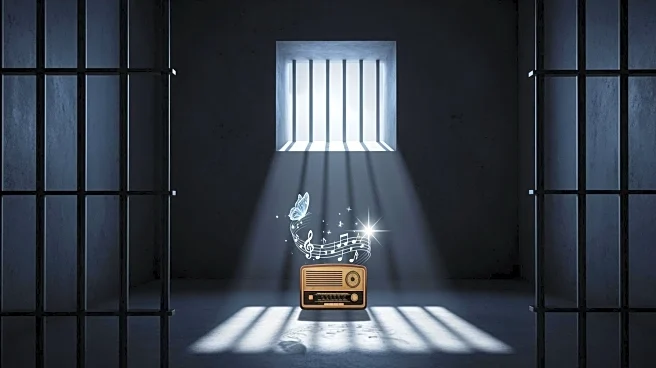What's Happening?
Luigi Mangione, currently incarcerated at Brooklyn's Metropolitan Detention Center, has found solace in music by Taylor Swift and Charli XCX. Mangione, who is facing charges for the murder of UnitedHealthcare CEO Brian Thompson, recently downloaded their
music to his prison tablet. This decision came after a fake list of his favorite artists circulated online, prompting him to explore new musical tastes. Despite initially enjoying Taylor Swift's 'Cardigan,' Mangione faced criticism from fellow inmate 'King,' who mocked his choices and influenced him to switch to Lil Durk's music. Mangione's charges include murder with a firearm, and he could face the death penalty if convicted.
Why It's Important?
The case of Luigi Mangione highlights the intersection of crime, media, and personal interests within the prison system. Mangione's engagement with popular music artists like Taylor Swift and Charli XCX reflects the broader cultural impact these figures have, even reaching individuals in incarceration. This development also underscores the influence of social media in shaping perceptions and decisions, as Mangione's musical exploration was sparked by a viral list. The potential death penalty in his case adds a significant legal dimension, drawing attention to the severity of the charges and the implications for justice and penal policy.
What's Next?
As Mangione's trial progresses, the focus will likely remain on the legal proceedings and the potential outcomes of his case. The influence of fellow inmates on his personal choices, such as music preferences, may continue to play a role in his daily life behind bars. The broader implications for prison culture and inmate interactions could be explored further, especially in relation to how external media influences internal prison dynamics. Stakeholders, including legal teams and advocacy groups, may weigh in on the fairness of the trial and the appropriateness of the potential death penalty.
Beyond the Headlines
Mangione's situation raises questions about the role of personal interests and cultural engagement in the rehabilitation process within prisons. The impact of music and media on inmates' mental health and social interactions could be a point of interest for researchers and policymakers. Additionally, the case may prompt discussions on the ethical considerations of media portrayal of incarcerated individuals and the potential biases that can arise from viral content.

















